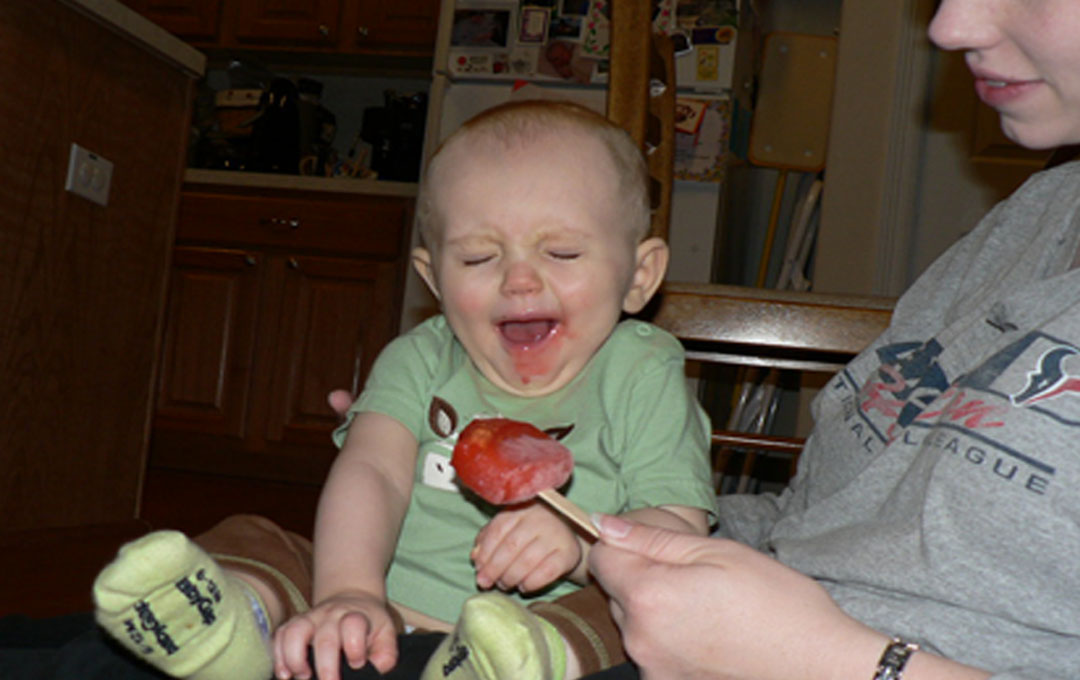Are you curious about why your baby grunts? It’s totally normal for babies to make grunting noises, especially during their first few months of life. But there are occasions when these sounds may be something to worry about. Read on to learn from doctors what you need to know about why your baby might be grunting, and when you should be concerned.
How to Identify Baby Grunting and When to Worry
Baby grunting is a common and normal behavior for infants, especially during the first few months of life. However, it’s important to know when baby grunting is a sign of potential medical concern. Here’s how to identify baby grunting and when to worry.

What is Baby Grunting?
Baby grunting is a common and normal behavior for infants, especially during the first few months of life. It usually occurs when a baby is passing gas, having a bowel movement, trying to sleep, or feeling discomfort. In some cases, baby grunting can be a sign of reflux or a sign of respiratory distress.
How to Handle Baby Grunting
Does your newborn make grunting noises? If so, you may be wondering what it means and when to worry. It’s important to know that baby grunting is a common and normal behavior for infants, especially during the first few months of life. But there are some occasions when these sounds may be something to worry about. Here’s what you need to know about baby grunting and what to do if you’re concerned.
Also Read: How To Prepare For A New Born Baby?
Why Does My Baby Grunt?
In the first few weeks of a baby’s life, grunting noises may be normal for a baby “learning to control their breathing and muscle tone.” Often, baby grunting can occur when a baby is passing gas or having a bowel movement, or when they are trying to sleep or feeling discomfort. Baby grunting syndrome (infant dyschezia) is the name for when an infant has difficulty coordinating the muscles they need to pass a bowel movement. This is a learned reflex and can take some time to master.
When Should I Be Concerned About My Baby Grunting?
Baby grunting is usually harmless, however, it’s not always easy to discern why your baby is grunting – or when it indicates something might be wrong. The best way to investigate why your baby may be grunting is to look for other signs that something is amiss. Consider other factors such as – is there a fever? Have they been constipated? How are they able to feed? Look out for anything else that might be out of the ordinary. For instance, the color of your baby’s skin could point to a respiratory or heart issue.
If the baby is crying or fussy, check for signs of discomfort such as a fever, teething, or ear infection, and address those issues as needed. To help keep track of what’s normal for your baby and what’s not, you can keep a diary of grunting episodes to see if there’s a pattern. If the grunting persists or is accompanied by other symptoms such as difficulty breathing or a change in color, consult a pediatrician to rule out any underlying medical issues.
Also Read: Prepare Your Baby At Home Safe – Expecting A Little One?
Bottom Line
Baby grunting is usually harmless and normal, however, if you’re worried, it’s always best to play it safe and have your baby evaluated by a healthcare professional. If the grunting is accompanied by other symptoms such as difficulty breathing or a change in color, it’s important to seek medical attention. Additionally, if you notice any other signs that something may be wrong, trust your instincts and consult your pediatrician.

